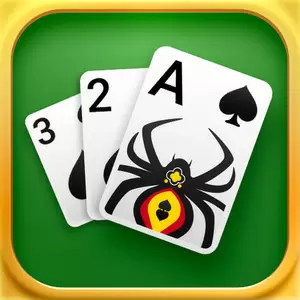Esports Games
Esports games, also known as electronic sports games, refer to electronic games that use electronic devices as sports equipment to engage in intellectual confrontations between people. Esports games can be divided into two categories: competitive games and casual games. Combat games mainly refer to narrow or classic esports games, while leisure games are electronic traditional sports and folk entertainment projects.































With the rapid development of technology and the popularity of the internet, esports games have evolved from their initial form of entertainment to a highly anticipated global competitive sport. Electronic sports games not only integrate the competitive spirit of traditional sports, but also have unique digital, networked, and interactive features, attracting the attention and participation of countless players and audiences.
The origin of esports games can be traced back to the 1960s, with the birth of the first computer game "Spacewar", the embryonic form of esports began to emerge. Subsequently, the electronic game industry continued to develop. From arcades and home consoles to personal computers and the Internet, the electronic game gradually matured. Especially in the late 1990s, with the rise of game companies such as Blizzard and V-League, and the emergence of real-time strategy games and first person shooter games, esports games officially entered a new stage of development.
Entering the 21st century, with the popularity of the internet and mobile networks, esports games have experienced explosive growth. Worldwide, various esports events are constantly emerging, with prize pools constantly rising, attracting a large number of professional players and clubs to join. At the same time, esports games have gradually gained recognition and support from various sectors of society, becoming an official sports event.
Esports games have the characteristics of low entry barriers, low requirements for venues, cheap equipment, and few personnel requirements. Players can engage in real-time battles online without being restricted by geography. There are various types of esports games, including but not limited to shooting, strategy, combat, sports simulation, and more. The more extensive and mature projects in the field of combat include StarCraft, Warcraft III, etc. Everyone should be familiar with leisure projects. Such as online Go, Chinese Chess, Shikoku Army Chess, Bridge, Mahjong, Gongzhu, Landlord Dou, and Tractor. These are also the pistachios for everyone's daily rest and entertainment.
The popularity and development of esports games not only enrich people's entertainment lives, but also drive the development of related industries. The upstream and downstream links of the gaming industry chain, including game development, event operation, player training, and live streaming commentary, are interdependent and mutually reinforcing, forming a vast esports ecosystem. At the same time, esports games have also promoted cultural exchange and cooperation between countries and regions, becoming an important bridge connecting them.




























